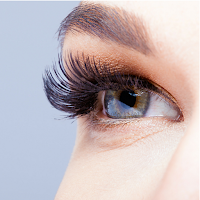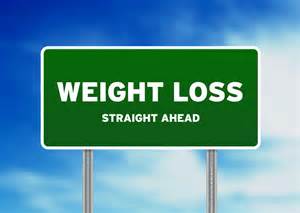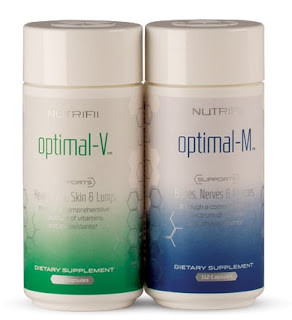Aging Eyes Need A Nutrient Boost To Stay Healthy
What does eyesight have to do with weight loss? Well, it's kinda hard to workout or prepare healthy food if you can't see what you're doing!
As we age, one issue most of us have to face is diminished eyesight. Age related loss of vision due to macular degeneration, cataracts, or glaucoma can be attributed to damage on a cellular level. Antioxidants found in certain vitamins and minerals help fight the free- radicals that are wreaking havoc throughout the body, including the eyes.
As we age, one issue most of us have to face is diminished eyesight. Age related loss of vision due to macular degeneration, cataracts, or glaucoma can be attributed to damage on a cellular level. Antioxidants found in certain vitamins and minerals help fight the free- radicals that are wreaking havoc throughout the body, including the eyes.
You'll find supplements on the market designed
specifically to keep your eyes healthy. Some actually claim to slow macular
degeneration and restore eyesight. However, these specialized products can be
expensive.
Without spending a lot of money, you can most likely find
a less expensive multivitamin which contains the exact vitamins and minerals
that are proven to help with eye health. Be sure to check the ingredients in
your multivitamin to see if you are taking some of the recommended vitamins and
minerals already. If this is the case, you may be able to simply supplement
your regular daily multivitamin with any missing elements, rather than buy the
more expensive 'eye health' products.
Take a look at the following list of nutrients that help
promote eye health. Several of the vitamins and minerals work best when taken
together. Remember to check your current multivitamin to see if these nutrients
are included, then decide how you can boost your eye health regimen. Here are
the nutrients you need for eye health, especially as you age:
Vitamin C
Your body needs vitamin C to promote healthy capillaries
in the retina and to help build collagen, important for the cornea of the eye.
Your body cannot produce vitamin C, so you must get it from foods or
supplements.
Vitamin E, Selenium
To help prevent age-related macular degeneration and
cataracts, take vitamin E along with selenium. Vitamin E widens blood vessels
and helps fight bacteria. Taking selenium with the vitamin E helps your body
absorb it and use it more effectively.
Vitamin A, Beta Carotene, Zinc
One of the easiest vitamins to get is vitamin A. Just
think colorful fruits and vegetables and you've got it. This vitamin helps
remove toxins from your entire body, including your eyes. It also helps your
body resist damage from UV rays. As you take in your vitamin A, it's essential
that your body has a good supply of beta carotene and zinc to absorb it and put
it to work. However, consult your doctor or health professional before taking a
zinc supplement as too much zinc can cause damage to the eyes.
Lutein, Zeaxanthin
These two nutrients team up specifically to protect the
eyes against diseases caused by macular degeneration. This team of nutrients
works together to filter out damaging light by acting as antioxidants in the
eye to protect and maintain healthy cells.
Age related vision loss is certainly a concern. But, you
can take preventative measures now to ensure you will have the best possible
protection against the harmful effects of cell aging and damage. Boost your
current multivitamin regimen with these nutrients to give yourself the eye
health advantage you deserve.



Comments
Post a Comment